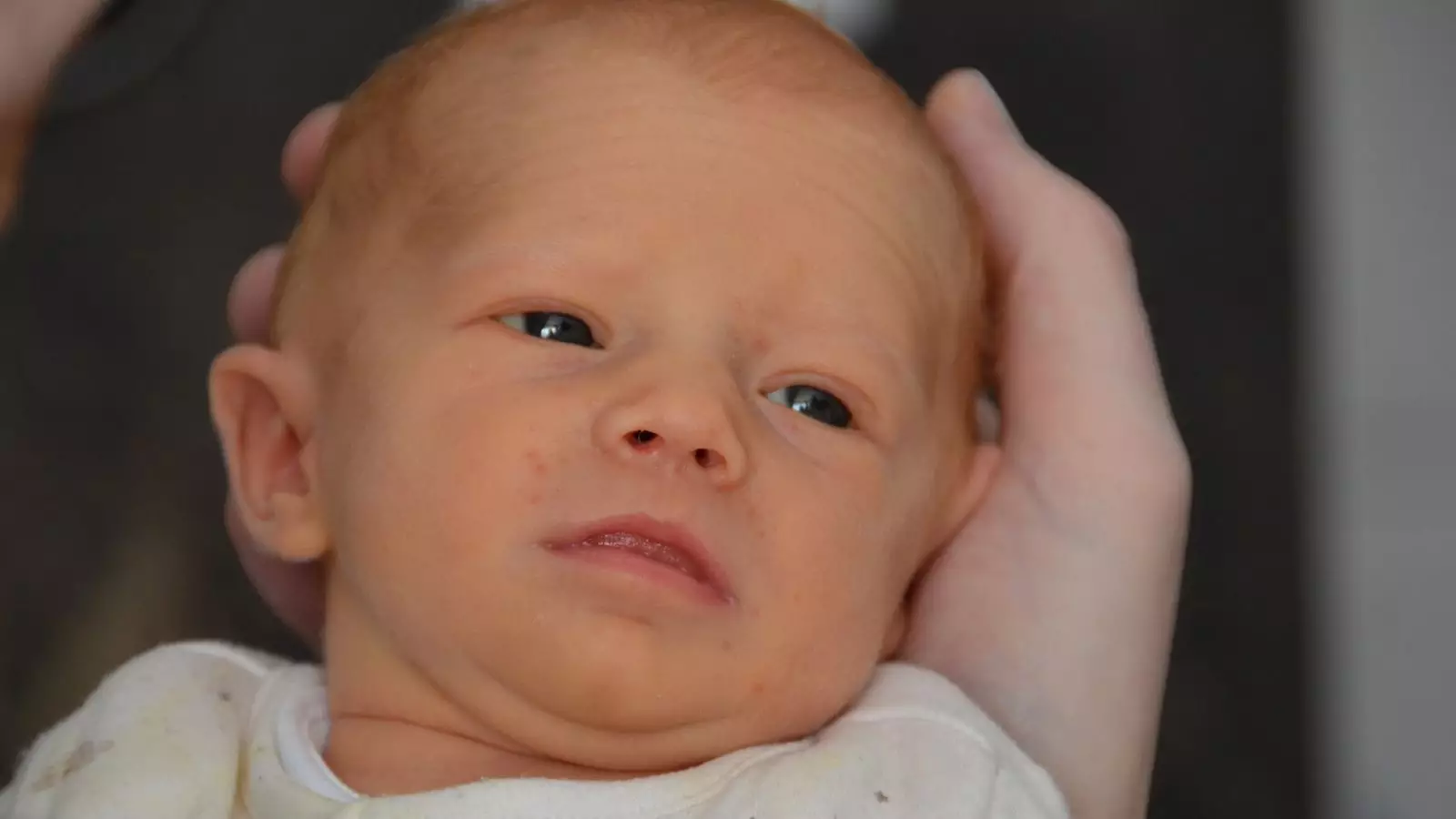In a landmark moment for medical science and personal triumph, the birth of baby Amy Isabel has captured the hearts of many, becoming a beacon of hope for women facing the challenges of uterine infertility in the UK. Grace Davidson’s story is not only one of personal wish fulfillment but also a profound example of how modern medicine can reshape destinies. The fact that she was able to give birth through means as cutting-edge as a womb transplant signals a revolutionary step towards combating infertility, especially for women affected by rare conditions such as Mayer-Rokitansky-Kuster-Hauser (MRKH) syndrome.
For too long, societal pressures and biological limitations have thwarted countless women’s dreams of motherhood. Davidson’s journey illustrates the emotional labyrinth many navigate in their quest to become parents. The sheer joy that enveloped Grace and her husband, Angus, upon holding their newborn is a narrative deeply rooted in resilience and hope. Their path to parenthood wasn’t merely an isolated endeavor; it was a collective family effort marked by bravery and sacrifice, demonstrated by Grace’s sister, Amy Purdie, who selflessly donated her womb.
A Tale of Sacrifice and Unity
The dynamics of familial bonds shine bright in Grace’s journey. Amy Purdie, Grace’s sister and the womb donor, is emblematic of unconditional support and love. The emotional courage required to undergo such a procedure cannot be overstated. To voluntarily partake in an operation that could forever alter one’s body for the sake of another person underscores a unique form of sacrifice, presenting the intricate layers of sibling relationships. This act befits a society that often underestimates the significance of familial support systems and sheds light on the collective endeavor in parenting.
What strikes me profoundly about this case is not just the scientific marvel that made the birth possible but the communal spirit underpinning it. The success was not solely attributed to advanced surgical techniques; it was also rooted in the ties of love and sacrifice, elements that are often sidelined in discourses about medical advancements.
Medical Marvel or Ethical Dilemma?
However, such strides in medical technology bring with them a crucial ethical conversation. At what point does the line blur between life-enhancing procedures and playing God? The complexity of womb transplants, far from being a straightforward solution, invites scrutiny about the implications for women’s health. While the operation is a technological marvel, there remains a conversation about the long-term health risks for both donor and recipient.
Business interests and the booming fertility industry should tread cautiously, ensuring ethical standards in stem cell research and reproductive health are sustained without commercialization overshadowing genuine care. It’s critical that as we celebrate these advancements, we also remain vigilant about balancing innovation with moral responsibility.
Hope for Thousands
Moreover, Grace Davidson’s experience serves as an inspiration to the approximately 1 in 5,000 women affected by MRKH syndrome who often face the harsh reality of a life without the ability to bear children. Her triumph rings true as a powerful narrative signaling that hope is attainable, even in circumstances that seem insurmountable. For many, Davidson’s experience may serve as a catalyst for further advocacy toward medical resources and treatments for infertility.
In a world growing increasingly cynical, the joy exhibited by Davidson and her family offers a refreshing reminder of what is possible. We must celebrate these advancements while also advocating clarity and compassion in medicine, ensuring a true path toward holistic women’s health. Through stories of resilience, sacrifice, and medical triumphs, we can find renewed faith in the collective journey toward motherhood, showcasing the incredible potential that resides in human ingenuity and familial love.

